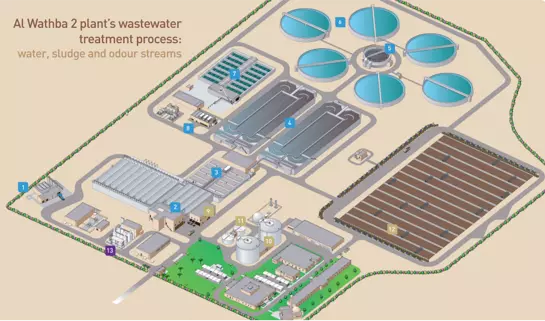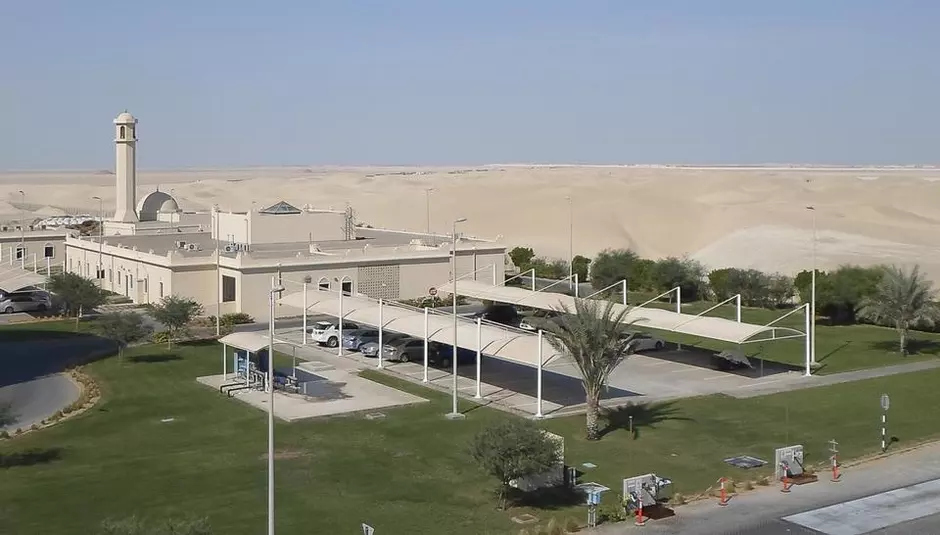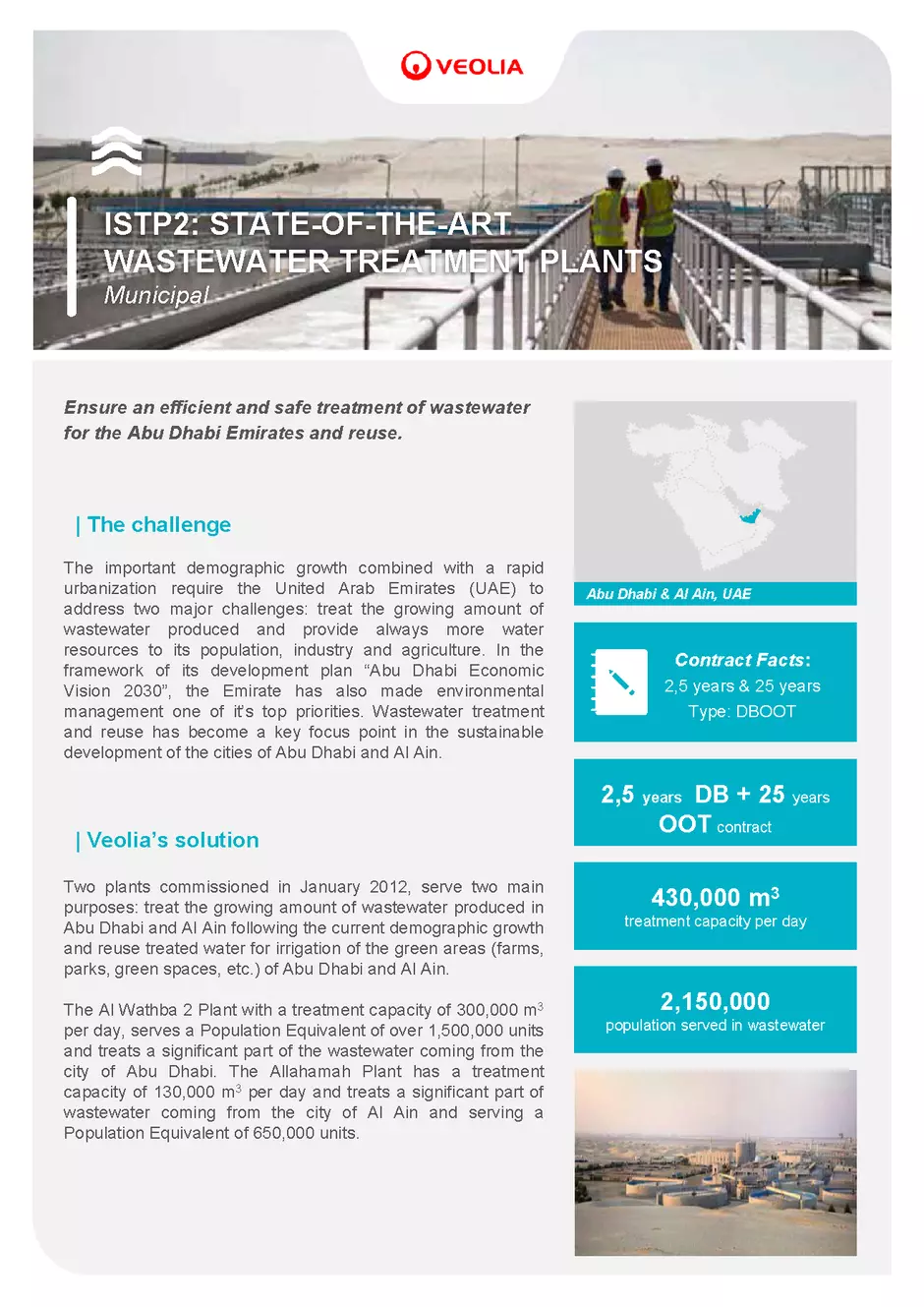Ensure an efficient and safe treatment of wastewater for the Abu Dhabi Emirates and reuse.
The challenge
The important demographic growth combined with a rapid urbanization require the United Arab Emirates (UAE) to address two major challenges: treat the growing amount of wastewater produced and provide always more water resources to its population, industry and agriculture. In the framework of its development plan “Abu Dhabi Economic Vision 2030”, the Emirate has also made environmental management one of it’s top priorities. Wastewater treatment and reuse has become a key focus point in the sustainable development of the cities of Abu Dhabi and Al Ain.
Veolia’s solution
Two plants commissioned in January 2012, serve two main purposes: treat the growing amount of wastewater produced in Abu Dhabi and Al Ain following the current demographic growth and reuse treated water for irrigation of the green areas (farms, parks, green spaces, etc.) of Abu Dhabi and Al Ain.
The Al Wathba 2 Plant with a treatment capacity of 300,000 m3 per day, serves a Population Equivalent of over 1,500,000 units and treats a significant part of the wastewater coming from the city of Abu Dhabi. The Allahamah Plant has a treatment capacity of 130,000 m3 per day and treats a significant part of wastewater coming from the city of Al Ain and serving a Population Equivalent of 650,000 units.
Process description

To go through each step of the treatment, watch this educational movie.
The benefits
In our plants, we apply a circular economy: reduce, reuse, recover. The treated wastewater (430,000 m3/day) from both plants is of high quality and has all the required characteristics to be recycled/reused for district cooling, irrigation and defined agricultural activities. This project saves the Emirate of Abu Dhabi millions of cubic meters expensive and precious desalinated potable water each year.
The production of biosolids from the wastewater treatment process amounts to 22,000 tonnes per year. These biosolids are naturally rich in organic matter and nutrients (Nitrogen, Phosphorus, etc.), which can be used as fertilizer and soil conditioner in most landscaping and agricultural activities. Using these biosolids also allows the reduction of irrigation requirement due to the good moisture retention qualities.
Biogas is also a byproduct of waste water treatment, which can be used to generate electricity for internal or external use, thus reducing the use of expensive electricity from the power grid.
The operation and maintenance of wastewater treatment plants with the expertise and know-how of Veolia reduces the carbon footprint of any plant and is integrated from the design stage of any project such as the ISTP2 project. Continuous improvement and optimization is actively embraced and is woven into the manner in which all wastewater treatment plants are managed by Veolia.
SOCIAL
- Active development of Emirati students through internship projects to create the workforce of the future.
COMMERCIAL
- Deployment of innovative solutions for more sustainable and digital operation.
ENVIRONMENTAL
- Contribution to circular ecosystem with TSE reuse and biogas from sludge.
- Reduction of electricity consumption.
HUMAN RESOURCES
- Implementation of a behavioral health and safety program leading to zero accidents.




